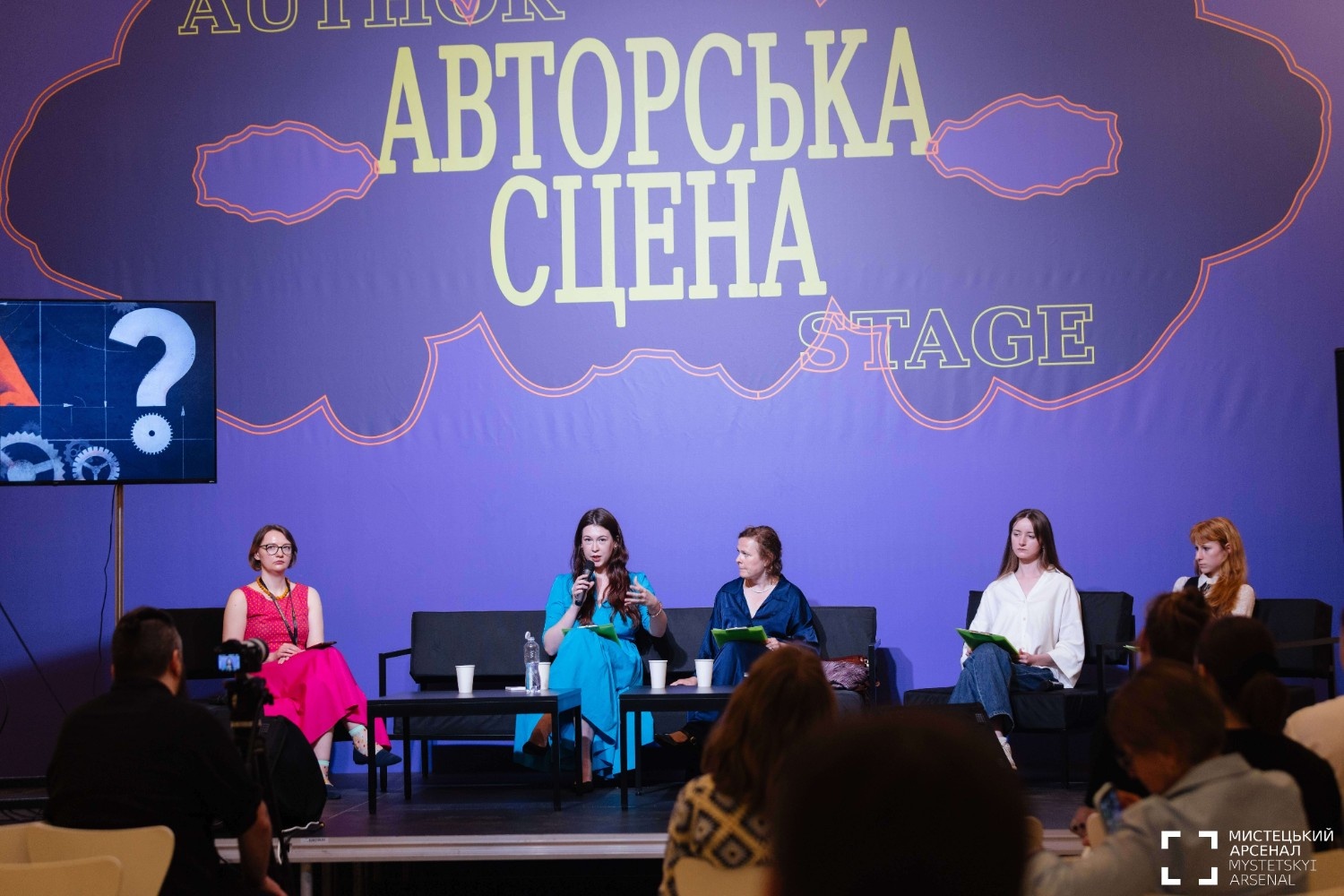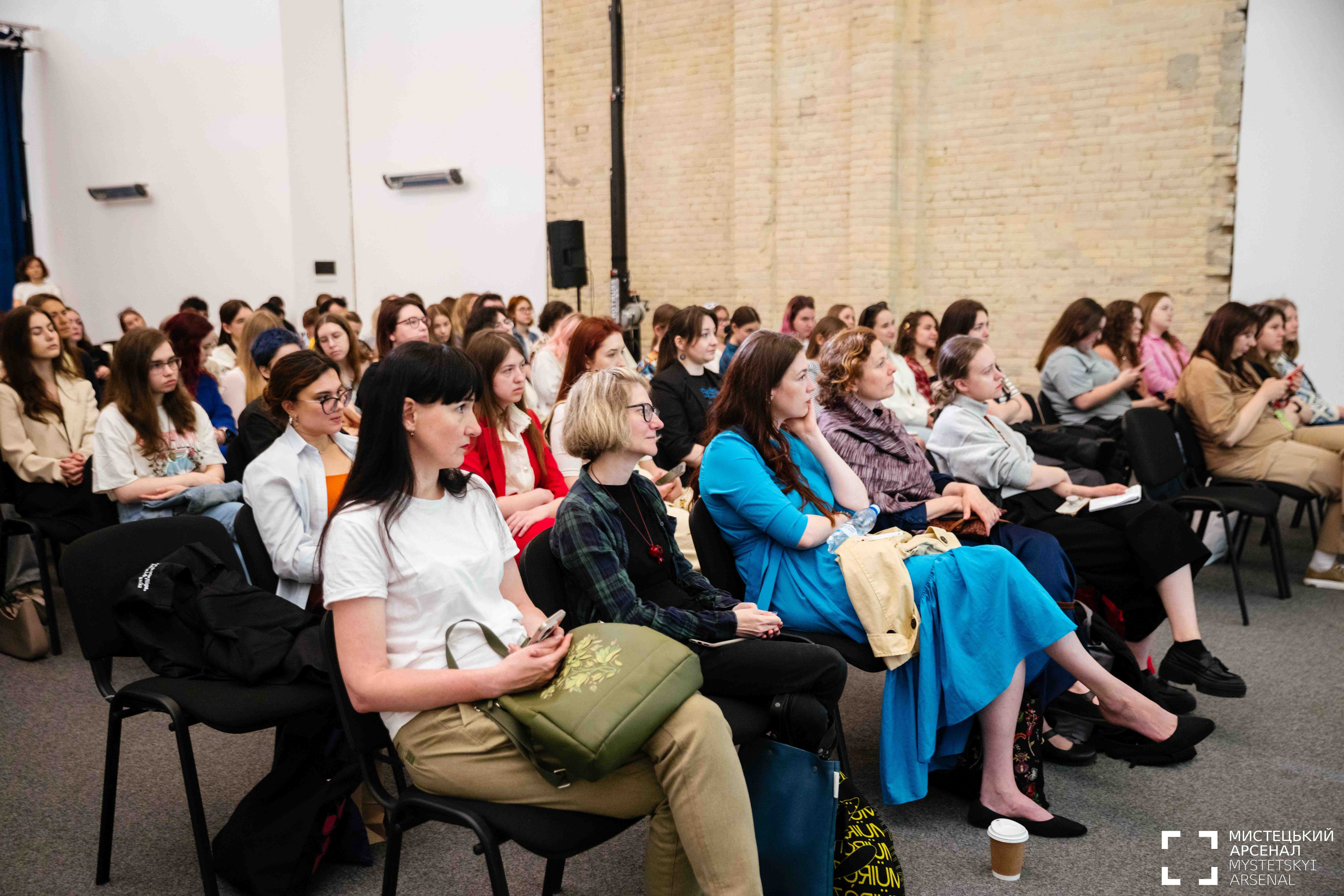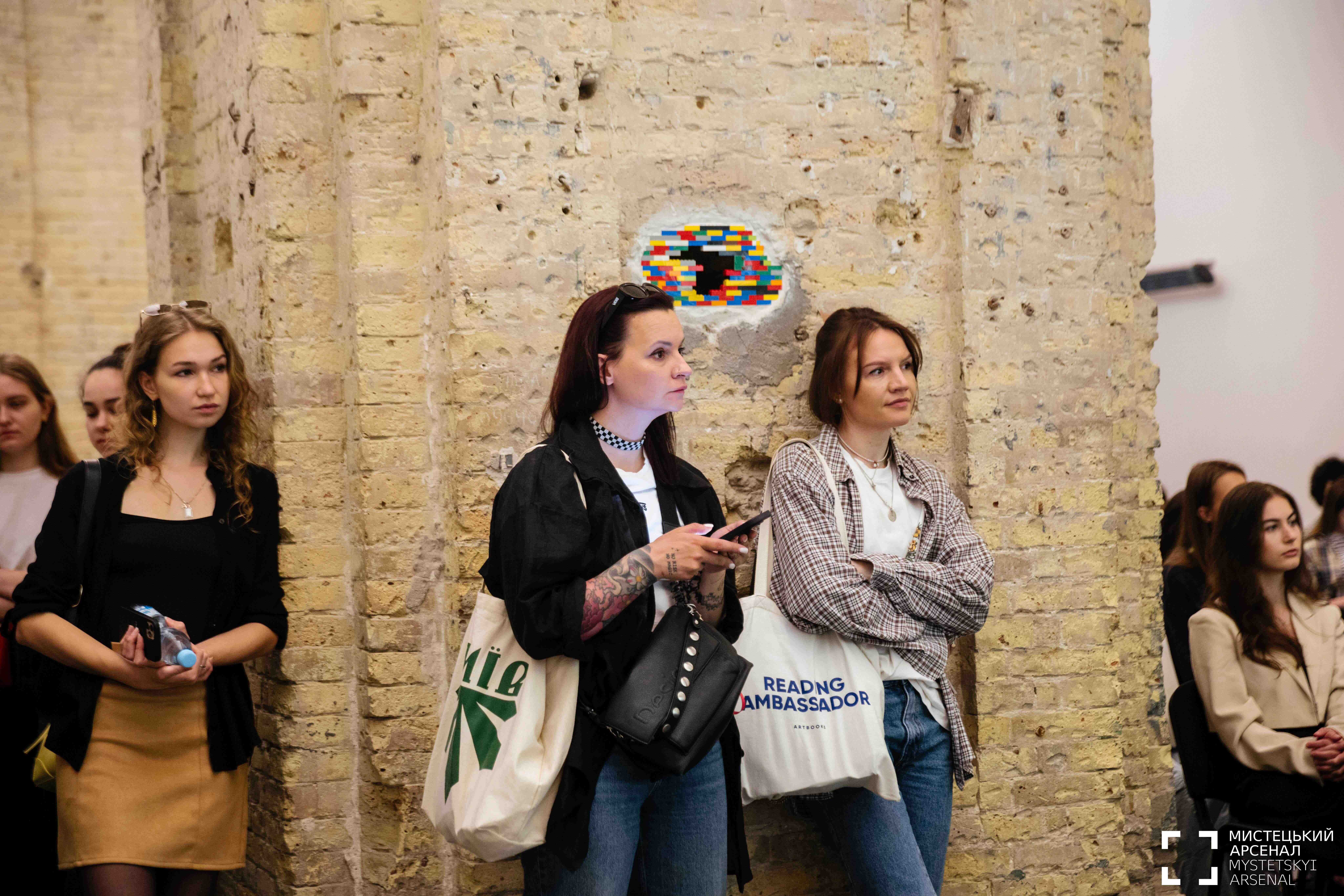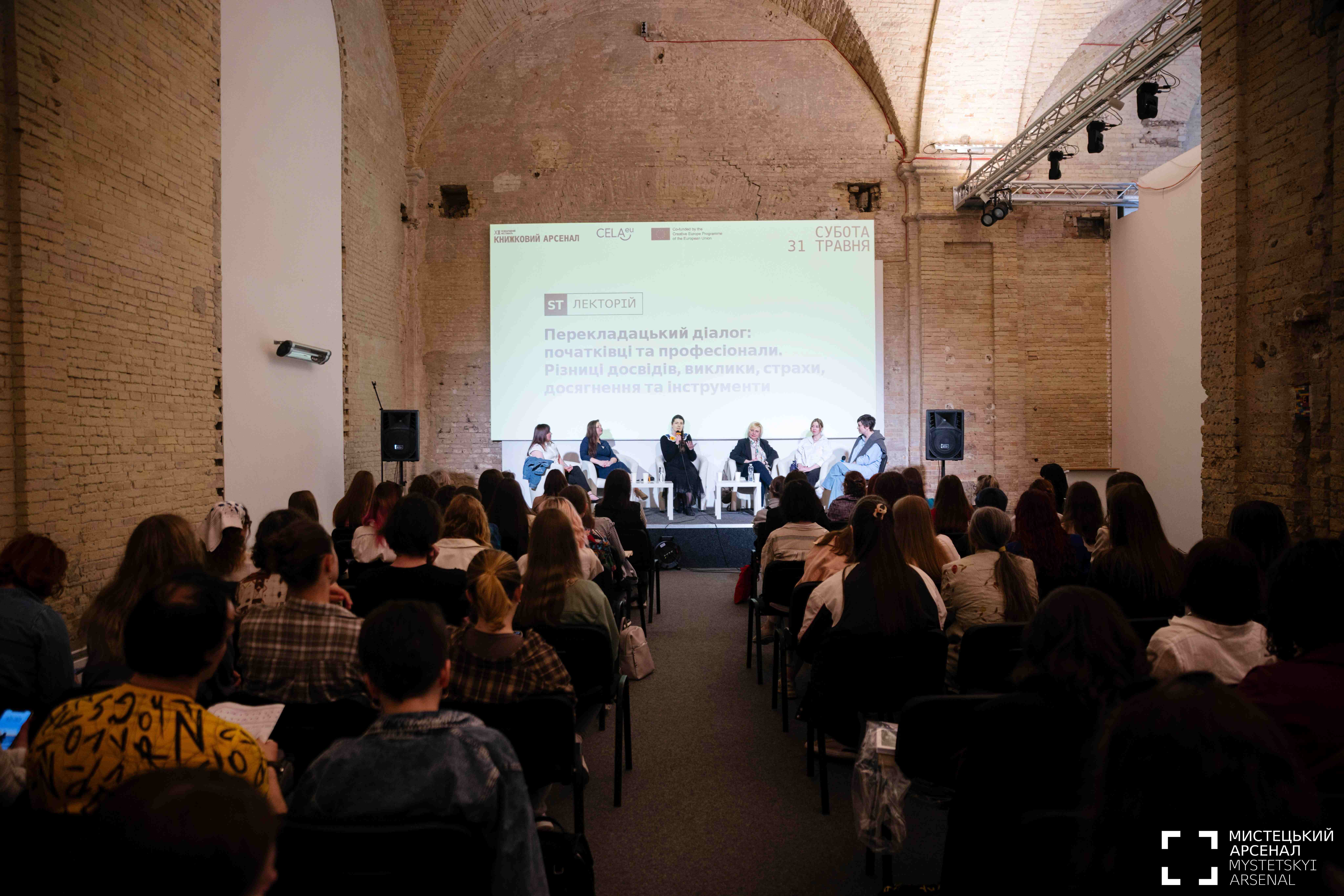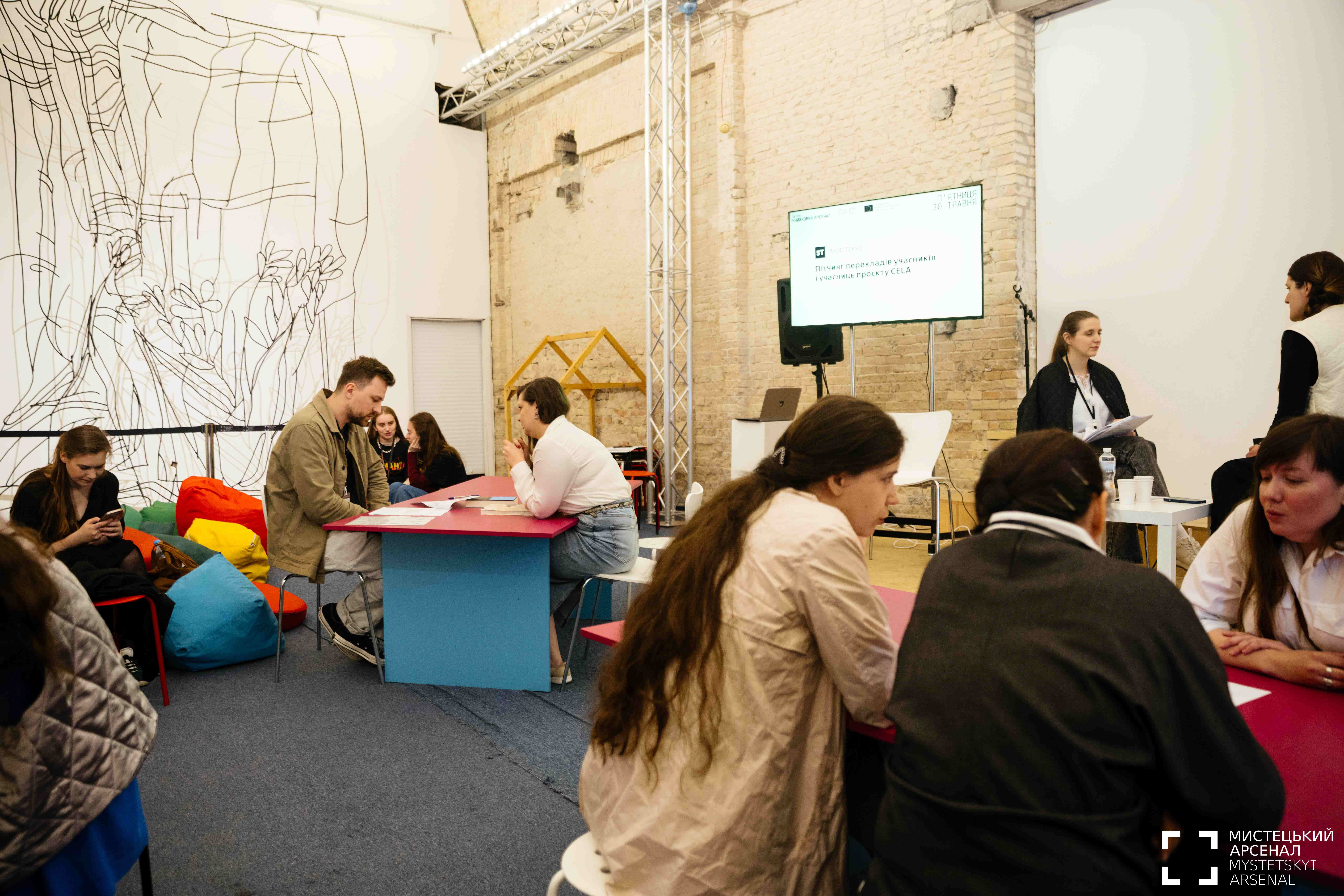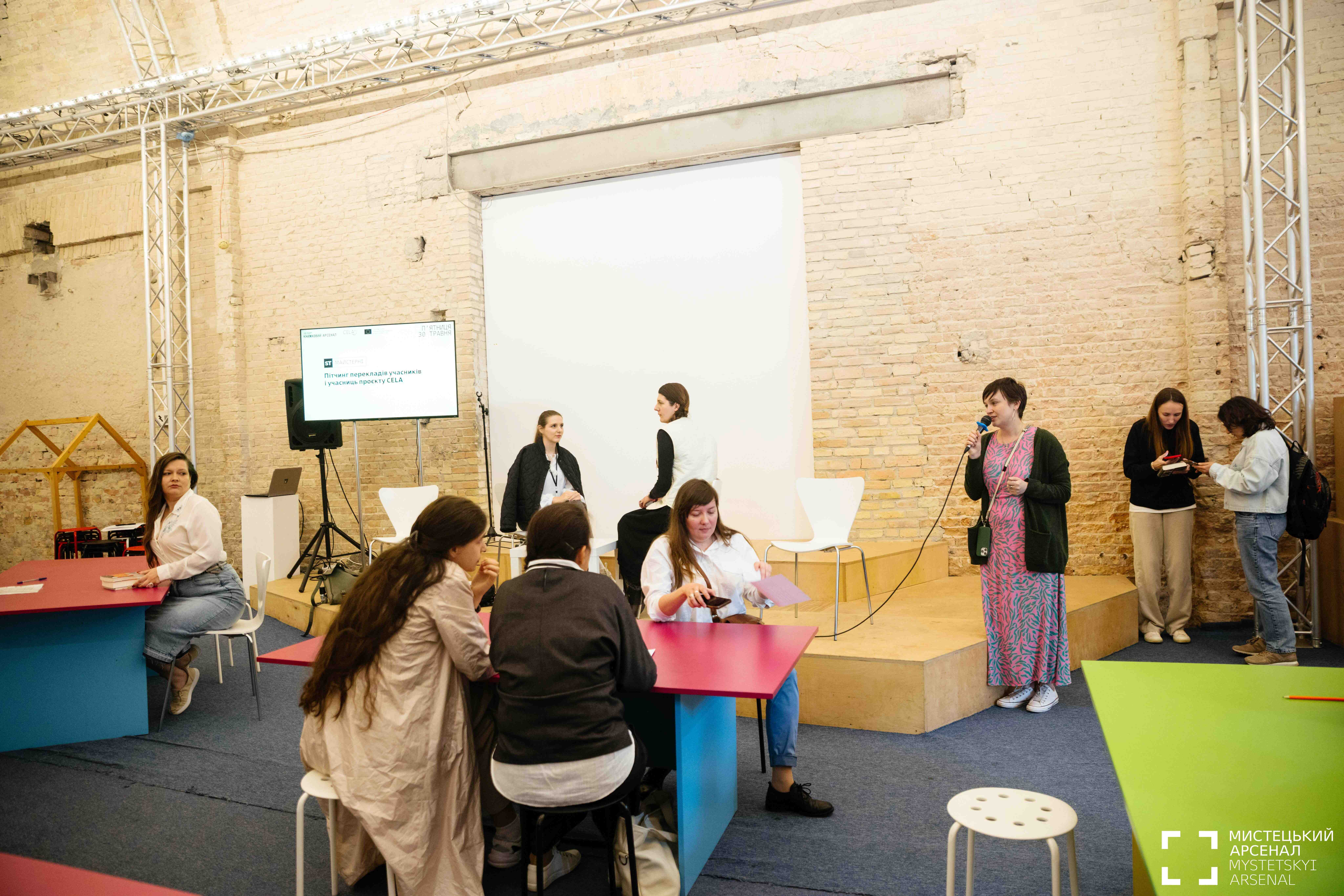Reflections about International Book Arsenal Festival – by Olena Roman (translator IT – UK)
I wait for the confirmation with bated breath. Until the very last moment, I don’t know if I’ll be allowed to leave work and go to Kyiv. The reply doesn’t come. Minutes stretch like rubber bands. And then - “yes.” Anxious anticipation gives way to the thrill of hunting for train tickets. I keep refreshing my inbox, as if the speed of a click could bring the train closer. When the e-tickets finally arrive, I rejoice like a child — vulnerably, wholeheartedly: I’m going to the Book Arsenal Festival. To me, this excitement is self-evident. Yet, many of my German colleagues are puzzled: “How can she go to Kyiv while the war is still ongoing? When just yesterday, Russian drones were wreaking havoc in the city?”
This spring, I read Traduire comme transhumer by the French translator, poet, and essayist Mireille Gansel. In her writing, she imagines translation as transhumance – the annual migration of flocks between winter and summer pastures. A slow, rhythmic, yet intense journey. One must remember the paths, trust the climate, read the vegetation, sense the terrain. Flocks are not driven by them, they’re led, with care, ensuring no lamb is lost along the way. A translator, Gansel writes, does the same. We lead words through linguistic mountain passes – making sure that no meaning is left behind.
My journey to Kyiv this May felt like a kind of transhumance, too. I set out from a small town in southern Germany, then made it to Munich, then crossed Austria and Poland on a slow train. At the Polish-Ukrainian border, I finally switched to a Ukrainian Railways carriage. Two days on the road, with every city shrouded in rain. The sky hung low and heavy over the carriages like a leaden canopy. My head buzzed with worry: Will I make it in time for the pitch session?
05:00. Kyiv. I step out of the station into the soft, almost warm morning light. The sun gently touches my face, and for a moment, it feels as if there is no war. But then I turn my head just to see the shattered facade of a residential high-rise – scorched marks from a drone strike. Morning tenderness and the scars of nightly attacks stand side by side like two incompatible texts waiting for a translator. And it is this reality that serves as a stage to the Book Arsenal, our annual transhumance of culture toward the summer pastures of freedom.
I take the metro to the Book Arsenal. The festival venue is located just beyond the wall of the Kyiv-Pechersk Lavra, Ukraine’s most ancient spiritual centre, founded in 1051. The building that now hosts the book festival once belonged to a convent with its own church. In 1750, by order of Russian Empress Elizaveta Petrovna, the sacred structure was dismantled and converted into an artillery depot. In 1797, Kyiv merchant Hryhorenko finalized the transformation: the former monastery became a military arsenal. The symbolism is stark: from a house of prayer to a warehouse of weapons. A spiritual refuge was repurposed into a material instrument of empire. Today, in the twenty-first century and amidst a full-scale war, Russia once again uses the church as a weapon, exploiting it as a means of influence, a source of disinformation, and a tool of political pressure.
But now, within these very walls, it is not cannons we store – but words. And art. “Everything is translation” is the guiding theme of the 2025 Book Arsenal. But can language truly capture reality in full? What about untranslatable concepts and words that only exist within their native landscapes? When the experiences of societies differ so drastically, translation ceases to be a mere technique, it becomes a field of ethical negotiation: How can we hear each another while still maintaining the complexity?
Before the pitching session, we, the CELA participants, flock together. We’re nervous, but we stand by each other. Each of us introduces a writer whose work deserves to cross borders together with their stories that can enrich readers, allowing them to see something different, and still feel kinship at the same time.
I keep thinking about Mireille Gansel’s metaphor of transhumance – the slow, steady herding of flocks from one pasture to another. CELA, too, leads us gently, helping young translators navigate linguistic and professional mountain passes toward the pastures – publishers and readers. Without this guidance, the road would be longer, lonelier and more dangerous.
Saturday, May 31.
• Translation Dialogue: Beginners and Professionals (Alla Tatarenko, Mariana Klymets, Yuliia Stakhivska, Oleksandra Laktionova, Olena Roman, Oksana Ziobro).
• Networking for Emerging Authors: Readings of CELA Participants' Translations (Magdaléna Sodomková (Czech Republic), Julia Lukovniak (Slovenia), Olga Futoran, Yuliia Stankevych).
As I listen to the Czech text by Magdaléna Sodomková and the Slovenian text by Julija Lukovnjak alongside their Ukrainian translation, I recall the words of German Romantic poet Friedrich Hölderlin: "One must learn one's own as well as the foreign; but mastering one’s own – that is the hardest." Indeed, the translator’s duty lies in reigning the realm of their native language so as to make visible the stories coming from beyond its borders.
At the Book Arsenal, I met a war documentarian and writer Myroslav Laiuk, a CELA author, who’s also taking part in several events at the festival. The Ukraїner Publishing stand hosts the display of his new book, Lists, a collection of reportage and essays on loss, and therefore on what humans hold most dear. On pages 9 to 11, he writes, “Loss is one of the most frequent words in the media: loss of the enemy, of equipment, of territory, of a hand, of a son, of sleep... It's the second word after 'war', and it breaks down into endless lists... Riding in a dark van, sailing in a boat, running to the trench, unable to write in a soaked notebook, I used a voice recorder to capture my thoughts. I thought: what if I lose these testimonies? I would lose more than just notes. Loss is what we didn’t witness. It’s what we forgot.”
In Traduire comme transhumer, Mireille Gansel mentions Vietnamese poet Chế Lan Viên, a defender of the Cham people's culture. He saw translation as a means of preserving endangered languages and their legends, treasures that must remain part of humanity’s heritage. His example resonates deeply with us today: since February 24, 2022, preserving and passing on have become our mission, too. If we fail to resist, the lists of losses may gain new entries:
- loss of our state language;
- loss of our cultural heritage;
- loss of our state itself;
- loss of our national identity.
Translation is the immune system of a language and culture. Through translations, we generate antibodies against devaluation and forgetting. We strengthen a community’s capacity to protect its culture. This, to me, is the core mission of the Book Arsenal: to cultivate and multiply our cultural "genome". We, the translators, are the kind shepherds; the texts, our flocks. And our task is not to lose a single “lamb of meaning,” but to carefully lead it from one linguistic pasture to another, so that stories may continue to travel through time, space and language. Because, truly, everything is translation.
Photography by Nastya Telikova
